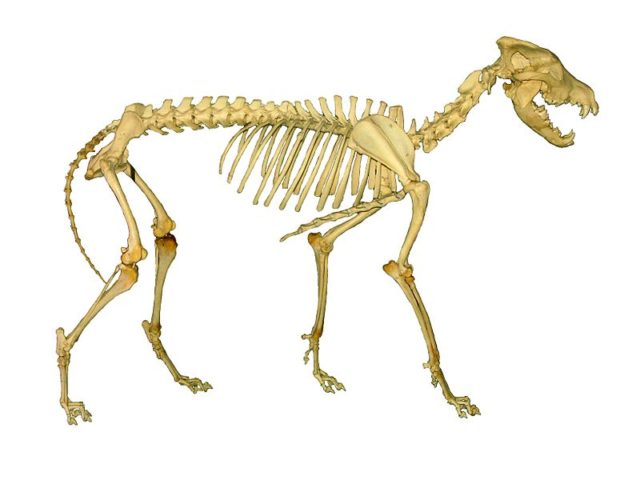A builder who was making a duck pond in a back garden has dug up the 20,000-year-old skeleton of a prehistoric wolf. Simon Ferguson, and his sons Richard and Adam, were digging a hole for a pond at the boys’ home in Thornton-Cleveleys, Lancashire. When their spades struck bone, they were shocked. The speechless trio peered down to see the fangs of animal lying the clay 11 ft underneath their backyard. Digging further, they revealed the wolf’s entire skeleton, a wolf so old that it lived before the building of Stonehenge, and the pyramids. The clay had left the bones amazingly well preserved.

You do not expect to discover something like this in your mack garden. Mr. Ferguson stated: “I’d moved about 200 tons of soil and I had found glass bottles that were about 150-200 years old. We came across one bone and then came across another and another. When we saw it in the ground the skull looked absolutely unbelievable, it looked prehistoric. The teeth and fangs were all in place. It was completely intact. The more you think about it, it’s like saying it’s 10,000 years older than Christ.”
The gray wolf was hunted to extinction in England in about 1500 AD. The one discovered by Mr. Ferguson is thought to have been the size of a Labrador, and had been around three years old when it died.

Luckily for the public, the men decided to donate the bones to a museum. Not many skeletons luke this have been discovered in England, only about one or two, and the fact that this one is almost entirely complete (92%) makes it even better. Stuart Noon, insights liaison officer for Portable Antiquities Scheme in Lancashire stated the wolf skeleton was a ‘grand specimen’ and added: ‘It is definitely a prehistoric gray wolf, known as a timber wolf, and it is between 10,000 and 20,000 years old.’ It is believed the museum would like to use the finding in a future exhibition surrounding climate change.
